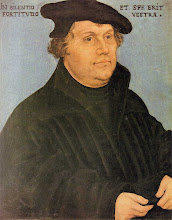... Gregory* "the Great." He was also a prolific writer whose works were very influential throughout the Middle Ages. In these writings, he did not seek to be original or creative. On the contrary, his greatest pride was not to say anything that had not been held by the great teachers of earlier centuries, particularly Saint Augustine. To him, it sufficed to be a disciple of the great bishop of Hippo, a teacher of his teachings. But in spite of such wishes, there was a chasm between Gregory and his admired Augustine. Gregory lived in a time of obscurantism, superstition, and credulity, and to a degree he reflected his age. By making Augustine an infallible teacher, he contradicted the spirit of that teacher, whose genius was, at least in part, in his inquiring spirit and venturesome mind. What for Augustine was conjecture, in Gregory became certainty. Thus, for instance, the theologian of Hippo had suggested the possibility that there was a place of purification for those who died in sin, where they would spend some time before going to heaven. On the basis of these speculations of Augustine, Gregory affirmed the existence of such a place, and thus gave impetus to the development of the doctrine of purgatory.
*He was the bishop of Rome at this time in about 540 A.D.









I have always wondered about this as well! Especially after growing up in the RC church. I never understood how they taught it, then didn't teach it......
ReplyDeletethanks for posting this! :)
Kristi
Hi there! I am posting again to see if I changed the email status, I think I did it! :)
ReplyDeleteKristi
Hi
ReplyDeleteYour post was wonderful. I just visited the Vatican in July. And, as a child I went to the Catholic Church. I have often wondered about the history of Purgatory. Thank you for the lesson. Also thank you for visiting My Cozy Corner.
xoxo
Betty